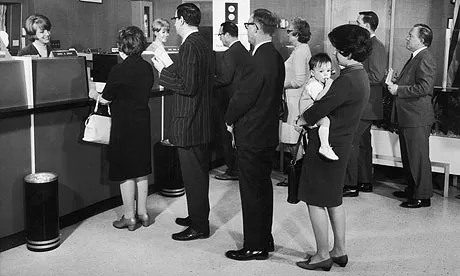As COVID-19 vaccinations progress and as our economic and social lives begin to return to normal, employers are faced with new challenges. These challenges are particularly difficult for banks and credit unions, which not only have significant central, corporate office-based operations, but also dispersed and much smaller public facing retail branches.
Here are some of the issues and related questions to consider as financial institutions move back to the office and the branches.
Vaccines
Can I require my employees to get the COVID-19 vaccine? In short, yes, but doing so might be more trouble than it is worth. The Equal Employment Opportunity Commission’s (EEOC) informal guidance states that if an employer mandates the vaccine, the employer must accommodate those with disabilities, pregnancy, or sincerely held religious beliefs. Further, to the extent such a program screens out employees with disabilities, the employer may need to provide reasonable accommodations that would allow the employee to work — such as remote work, flexible leave, or certain person protective equipment (PPE). An employer may otherwise be required to show that an unvaccinated employee poses a direct threat under the Americans with Disabilities Act (ADA) that cannot be eliminated or reduced by a reasonable accommodation.
While there are not currently any express prohibitions on mandating the vaccine, there are other issues to consider. Some argue that the COVID-19 vaccine should be treated differently than the flu vaccine because it is administered under an Emergency Use Authorization. A vaccine mandate under these circumstances is unchartered territory, subject to novel legal challenges. In addition, employers should be aware that there is pending legislation in several jurisdictions prohibiting an employer from mandating COVID-19 vaccines, while there is legislation pending in other jurisdictions requiring the vaccine for certain occupations or activities. Any employer considering a mandatory vaccine policy must check local requirements and recognize that this is a fluid area of the law.
Should I require my employees to get the COVID-19 vaccine? Considerations for banks and credit unions include:
-
Whether the mandate is consistent with state or local laws like those mentioned above;
-
The Emergency Use Authorization status of the COVID-19 vaccines currently available in the United States;
-
Whether a mandate will expose an employer to worker’s compensation or other liability if an employee has an adverse reaction;
-
Whether a unionized employer’s collective bargaining agreement allows it to mandate vaccines;
-
Privacy-related concerns;
-
Putting aside potential legal challenges, employers should consider potential employee relations and workplace morale; and
-
The need for continued COVID-19 safety protocols remains.
Can I ask if my employees or applicants have been vaccinated? Yes. The ADA limits an employer’s ability to inquire into an employee’s disability. Current guidance from the EEOC indicates that asking for proof of a vaccine is not likely to elicit information about a disability and thus, is not a disability-related inquiry. Employers must be careful, however, not to ask follow-up questions that could delve into the realm of a disability-related inquiry. For example, asking an employee why the employee did not receive a vaccine could elicit disability-related information. The EEOC guidance also indicates that employers will need to demonstrate that any follow-up inquiry is “job-related and consistent with business necessity.” In addition, employers must consider whether documentation requested from employees to confirm vaccination could reveal other health information. Therefore, any request for documentation should specifically advise the employee not to provide any other information to the employer.
Other important considerations are how and whether an employee’s vaccination information will be secured and distributed (e.g., to customers or vendors), as several other compliance laws and best practices could apply. Additional legal and privacy considerations also apply in certain jurisdictions, such as California.
Reluctant Employees
Can I terminate an employee who refuses to return to the office? Probably, but it depends on the reason underlying the employee’s unwillingness to return to work. When addressing these situations, the employee should provide the reason for declining to return in writing so that the employer can fairly and accurately assess the refusal. For example, an employee’s generalized fear, anxiety, or desire to avoid exposure to COVID-19 while commuting or working are not likely to trigger affirmative legal protections or justify an employee’s refusal to return to work. The same is true for child-care complications or other family obligations due to closed schools or day care providers.
However, some refusals may trigger leave entitlements under the Family and Medical Leave Act or applicable state or local leave laws or may raise reasonable accommodation obligations under the ADA and similar state and local laws. This might occur, for example, when an employee refuses to return to work because the employee has a medical condition that puts the employee at greater risk of COVID-19. In such cases, the employer must engage the employee in a discussion concerning potential reasonable accommodations and the essential functions of the job.
Employees who have legitimate safety concerns also may be protected by the Occupational Safety and Health Administration (OSHA). Employers should also ensure they are neutrally applying any policy, regardless of any other protected characteristic to avoid triggering protections under Title VII of the Civil Rights Act and similar state or local discrimination and retaliation laws. Finally, if an employee or an employee’s family member contracts COVID-19 and it can be traced to the workplace, litigation may ensue, particularly if death or other serious consequences result. Other considerations may apply in unionized workplaces.
Can I be required to provide remote work to employees? Possibly. If an employee has a disability that puts the employee at particular risk of COVID-19, remote work could be a reasonable accommodation required by the ADA or similar state or local laws. Employers should follow the same procedures set forth above, including requiring the request to be in writing and then analyzing the request to determine if it triggers legal protections.
Unemployment
Will my employee be able to collect unemployment if I terminate the employee for refusing to return to work? Maybe. In most states, former employees will not be able collect unemployment benefits if they refuse suitable employment. However, if the employee can demonstrate a valid safety concern in the workplace to justify the employee’s refusal to return to work, the employee will likely be able to collect benefits.
Potential Liability
Will the bank be liable if an employee contracts COVID-19 at work? Possibly, although it is likely that if the employee can prove causation (meaning, the employee can prove the employee contracted COVID-19 at work), the employee will be limited to collecting benefits under the workers’ compensation system. Some states have created a rebuttable presumption in workers’ compensation claims that employees, or certain categories of employees in the workplace, who became ill with COVID-19 contracted it in the workplace. Moreover, some states have statutes protecting employers from liability associated with COVID-19 contraction. Tort liability, as an exception to the general exclusivity of workers’ compensation remedies for workplace injuries, is possible if an employer knowingly caused an employee to contract COVID-19.
Employers also should keep OSHA in mind. OSHA has determined that employee COVID-19 infections may constitute occupational illnesses subject to occupational injury and illness recordkeeping requirements. Employers thus may be subject to reporting and recording obligations under federal OSHA and state equivalent requirements.
Finally, employers should be careful to recognize what is likely their biggest source of potential liability: whistleblower retaliation claims. The claims generally arise when employees raise health and safety concerns in the workplace. For example, a bank must be careful about disciplining a teller who refuses to report to work after complaining about coworkers failing to follow social distancing requirements or about customers failing to use hand-sanitizer before conducting transactions at the counter. Similar concerns apply to a bank’s decision to terminate a manager for violations of dual control requirements when the manager had previously notified a regional manager of PPE shortages in the branch. These kinds of situations raise whistleblower retaliation concerns that terminated employees will be quick to take advantage of.




 />i
/>i

